August 09, 2022 | January Payne
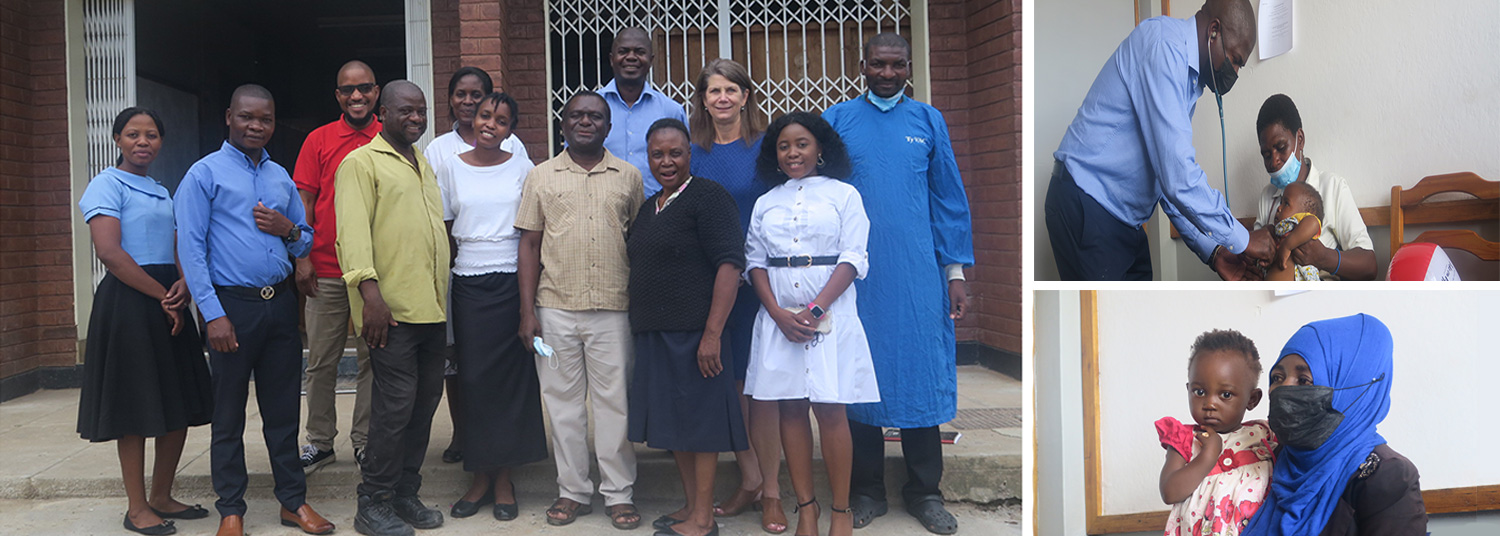
Vaccine does not interfere with routine measles-rubella vaccine in Malawian children
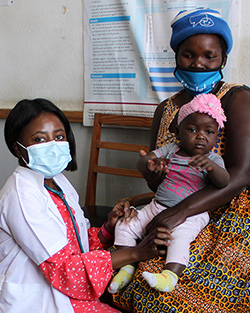 A new study, published in The Lancet Global Health, finds the typhoid conjugate vaccine, Typbar TCV®, provides immunity for up to three years in children as young as nine months old in Malawi. The research – conducted by the Blantyre Malaria Project, Malawi-Liverpool-Wellcome Trust, and researchers at the Center for Vaccine Development and Global Health (CVD) at the University of Maryland School of Medicine (UMSOM) – found that the TCV vaccine is safe and well tolerated. Importantly, the vaccine can be given to nine-month-old infants at the same time as routine measles-rubella vaccinations without reducing the immune response to either vaccine.
A new study, published in The Lancet Global Health, finds the typhoid conjugate vaccine, Typbar TCV®, provides immunity for up to three years in children as young as nine months old in Malawi. The research – conducted by the Blantyre Malaria Project, Malawi-Liverpool-Wellcome Trust, and researchers at the Center for Vaccine Development and Global Health (CVD) at the University of Maryland School of Medicine (UMSOM) – found that the TCV vaccine is safe and well tolerated. Importantly, the vaccine can be given to nine-month-old infants at the same time as routine measles-rubella vaccinations without reducing the immune response to either vaccine.
The newly published research is a double-blind, randomized, controlled clinical trial done in Blantyre, Malawi. The study team randomly assigned 631 children with no immunosuppression or chronic health conditions to either receive the TCV typhoid vaccine or a vaccine for meningococcal serogroup A conjugate, which is routinely used in Africa. The typhoid vaccine showed strong immune responses against typhoid in children ages nine months to 12 years old.
“It is simply amazing that a single dose of TCV will protect Malawian children for years,” said Ngina Nampota, MBBS, MS, lead author of the new research and Study Physician with the Blantyre Malaria Project, an affiliate of Kamuzu University of Health Sciences, Malawi.
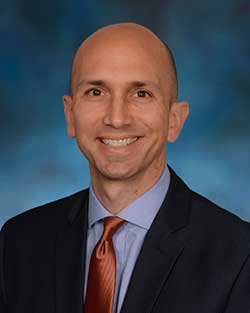
The new study is supported by TyVAC – a partnership between CVD, the Oxford Vaccine Group at the University of Oxford, and the global non-profit PATH. TyVAC aims to accelerate the introduction of the TCV vaccine as part of an integrated approach to reduce the burden of typhoid in countries eligible for support from Gavi, the Vaccine Alliance. TyVAC was initiated in 2016 as a multi-country project to accelerate the introduction of the TCV vaccine in Gavi-eligible countries.
“TCVs are the first vaccines that protect children as young as six months of age against typhoid. This study is one of the first to demonstrate a long-lasting immune response in African children who are disproportionately affected by typhoid and its potential consequences, including death,” said Matthew B. Laurens, MD, MPH, Professor of Pediatrics and Medicine at UMSOM and senior author of the new research. “TCVs will ensure children in affected areas can lead healthier, productive lives free of typhoid.”
These vaccines offer an easy – and World Health Organization-approved – way to control this devastating disease and save lives. Data from a phase 3 clinical trial in Malawi, published in September 2021 in The New England Journal of Medicine, also showed that this vaccine is a safe and effective way to protect children under age 15, the population most affected by typhoid. The new Lancet Global Health research is a “substudy” of this larger clinical trial.
 “TCVs continue to show promise for protecting children at risk for severe illness and death from typhoid. This study adds another piece of promising evidence to our knowledge base about these vaccines,” said Mark T. Gladwin, MD, Vice President for Medical Affairs at University of Maryland, Baltimore, and the John Z. and Akiko K. Bowers Distinguished Professor and Dean at UMSOM. “As TCVs are efficacious across a variety of geographic settings and age groups, this strong and lasting immune response to vaccination will keep infants and children safe from typhoid for a long time.”
“TCVs continue to show promise for protecting children at risk for severe illness and death from typhoid. This study adds another piece of promising evidence to our knowledge base about these vaccines,” said Mark T. Gladwin, MD, Vice President for Medical Affairs at University of Maryland, Baltimore, and the John Z. and Akiko K. Bowers Distinguished Professor and Dean at UMSOM. “As TCVs are efficacious across a variety of geographic settings and age groups, this strong and lasting immune response to vaccination will keep infants and children safe from typhoid for a long time.”
Additionally, the new study showed that children under one year of age had both a strong immune response and no significant side effects when TCV was given alongside a routine measles-rubella vaccine. In countries with limited access to health care and transportation, the ability to administer multiple vaccines in one visit improves access to preventive care. Children who receive TCV typically experience mild side effects, most commonly injection-site pain. These reactions are consistent with other similar vaccines.
 “TCVs provide a ray of hope in resource-limited settings, where children are disproportionately impacted by typhoid,” said Kathleen Neuzil, MD, MPH, the Myron M. Levine, MD, DTPH, Professor in Vaccinology at UMSOM and coauthor of the current study. “With broad use of TCVs, combined with improved water and sanitation, we have the ability to make typhoid a disease of the past.” Dr. Neuzil is also the director of CVD at UMSOM and principal investigator for TyVAC.
“TCVs provide a ray of hope in resource-limited settings, where children are disproportionately impacted by typhoid,” said Kathleen Neuzil, MD, MPH, the Myron M. Levine, MD, DTPH, Professor in Vaccinology at UMSOM and coauthor of the current study. “With broad use of TCVs, combined with improved water and sanitation, we have the ability to make typhoid a disease of the past.” Dr. Neuzil is also the director of CVD at UMSOM and principal investigator for TyVAC.
The next steps, Dr. Laurens said, are to assess the effect of a booster dose on long-term protection from typhoid fever in children. While researchers continue to monitor the children vaccinated as part of this study, previous research suggests that TCV protection likely lasts at least five years.
The Bill & Melinda Gates Foundation partially funded this study with grant OPP1151153. Typbar TCV® is licensed by Bharat Biotech International Limited, Hyderabad, India.
About the University of Maryland School of Medicine
Now in its third century, the University of Maryland School of Medicine was chartered in 1807 as the first public medical school in the United States. It continues today as one of the fastest growing, top-tier biomedical research enterprises in the world -- with 46 academic departments, centers, institutes, and programs, and a faculty of more than 3,000 physicians, scientists, and allied health professionals, including members of the National Academy of Medicine and the National Academy of Sciences, and a distinguished two-time winner of the Albert E. Lasker Award in Medical Research. With an operating budget of more than $1.3 billion, the School of Medicine works closely in partnership with the University of Maryland Medical Center and Medical System to provide research-intensive, academic and clinically based care for nearly 2 million patients each year. The School of Medicine has nearly $600 million in extramural funding, with most of its academic departments highly ranked among all medical schools in the nation in research funding. As one of the seven professional schools that make up the University of Maryland, Baltimore campus, the School of Medicine has a total population of nearly 9,000 faculty and staff, including 2,500 students, trainees, residents, and fellows. The combined School of Medicine and Medical System (“University of Maryland Medicine”) has an annual budget of over $6 billion and an economic impact of nearly $20 billion on the state and local community. The School of Medicine, which ranks as the 8th highest among public medical schools in research productivity (according to the Association of American Medical Colleges profile) is an innovator in translational medicine, with 606 active patents and 52 start-up companies. In the latest U.S. News & World Report ranking of the Best Medical Schools, published in 2021, the UM School of Medicine is ranked #9 among the 92 public medical schools in the U.S., and in the top 15 percent (#27) of all 192 public and private U.S. medical schools. The School of Medicine works locally, nationally, and globally, with research and treatment facilities in 36 countries around the world. Visit medschool.umaryland.edu
About the Center for Vaccine Development and Global Health
For over 40 years, researchers in the Center for Vaccine Development and Global Health have worked domestically and internationally to develop, test, and deploy vaccines to aid the world’s underserved populations. CVD is an academic enterprise engaged in the full range of infectious disease intervention from basic laboratory research through vaccine development, pre-clinical and clinical evaluation, large-scale pre-licensure field studies, and post-licensure assessments. CVD has worked to eliminate vaccine-preventable diseases. CVD has created and tested vaccines against cholera, typhoid fever, paratyphoid fever, non-typhoidal Salmonella disease, shigellosis (bacillary dysentery), Escherichia coli diarrhea, nosocomial pathogens, tularemia, influenza, malaria, and other infectious diseases. CVD’s research covers the broader goal of improving global health by conducting innovative, leading research in Baltimore and around the world. CVD researchers are developing new and improved ways to diagnose, prevent, treat, control, and eliminate diseases of global impact. Currently, these diseases include typhoid, Shigella, E. coli diarrhea, malaria, and other vaccine-preventable infectious diseases. CVD researchers have been involved in critical vaccine development for emerging pathogens such as Ebola and Zika. In addition, CVD’s work focuses on the ever-growing challenge of antimicrobial.
Contact
January Payne
Director of Public Relations
University of Maryland School of Medicine
Office of Public Affairs & Communications
c: 443-203-8183
e: january.payne@som.umaryland.edu
t: @januarypayne
Related stories

Tuesday, April 30, 2024
Miriam K. Laufer Appointed Interim Director of the Center for Vaccine Development and Global Health
The University of Maryland School of Medicine (UMSOM) Dean, Mark T. Gladwin, MD, announced that Miriam K. Laufer, MD, Professor of Pediatrics, Medicine, and Epidemiology & Public Health, has been appointed as the Interim Head of UMSOM's Center for Vaccine Development and Global Health (CVD).

Tuesday, April 30, 2024
Miriam K. Laufer Appointed Interim Director of the Center for Vaccine Development and Global Health
University of Maryland School of Medicine (UMSOM) Dean, Mark T. Gladwin, MD, announced that Miriam K. Laufer, MD, Professor of Pediatrics, Medicine, and Epidemiology & Public Health, has been appointed as the Interim Head of UMSOM's Center for Vaccine Development and Global Health (CVD).
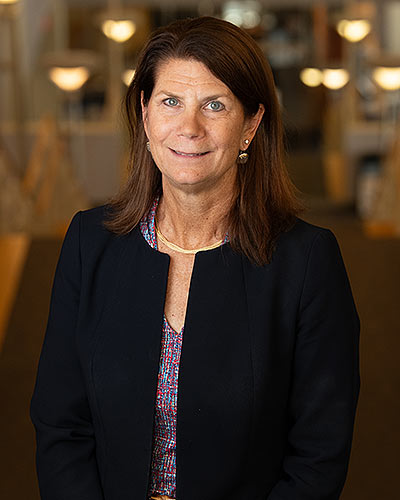
Thursday, March 28, 2024
NIH selects Dr. Kathleen Neuzil as Director of The Fogarty International Center
Kathleen M. Neuzil, MD, MPH, Director of the University of Maryland School of Medicine’s (UMSOM) Center for Vaccine Development and Global Health, has been named the 13th director of the Fogarty International Center (FIC), which is part of the National Institutes of Health (NIH). Dr. Neuzil will be the first woman to hold the permanent directorship since the center’s founding in 1968 and will also hold the position of Associate Director for International Research at NIH.

Thursday, October 12, 2023
UM School of Medicine's Kirsten Lyke Elected as Member of Prestigious National Academy of Medicine
Kirsten E. Lyke, MD, Professor of Medicine and Physician-Scientist at the Center for Vaccine Development and Global Health (CVD) at the University of Maryland School of Medicine (UMSOM), was elected this week as a new member of the National Academy of Medicine (NAM). She was recognized for her pivotal research in emerging infections and human challenge models that have informed and shaped global vaccine and public health policy.

Thursday, January 26, 2023
Small Study Shows Promise for Antimalarial Monoclonal Antibody to Prevent Malaria
A monoclonal antibody treatment was found to be safe, well tolerated, and effective in protecting against malaria in a small group of healthy volunteers who were exposed to malaria in a challenge study, according to new research published in by researchers at the University of Maryland School of Medicine (UMSOM).

Monday, August 08, 2022
New Study Finds Rapid Decline in Vaccine-Boosted Neutralizing Antibodies Against Omicron Subvariant BA.5
A study led in part by investigators at the University of Maryland School of Medicine’s (UMSOM) Center for Vaccine Development and Global Health found that although COVID-19 booster vaccinations in adults elicit high levels of neutralizing antibodies against the Omicron variant of SARS-CoV-2, those antibody levels decrease substantially within three months. Kirsten E. Lyke, MD, Professor of Medicine at UMSOM and scientist at CVD, is Co-Chair and site Principal Investigator for the study, and Meagan Deming, MD, PhD, Assistant Professor of Medicine at the UMSOM, also a scientist at CVD, is Vice-Chair of the study, which is a collaboration between investigators at the UMSOM’s CVD and the Institute of Human Virology (IHV).
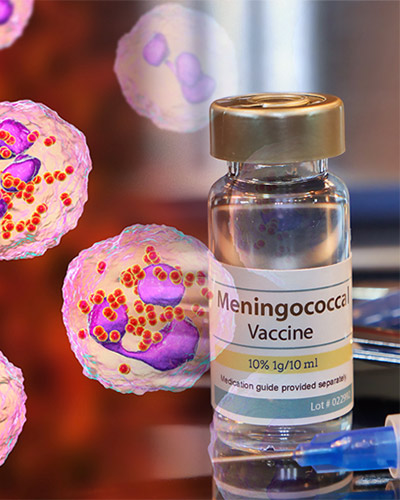
Thursday, March 24, 2022
UM School of Medicine Leads Research to Assess Meningococcal Vaccine for Infants and Young Children in Africa
Researchers at the University of Maryland School of Medicine (UMSOM)’s Center for Vaccine Development & Global Health (CVD) are leading a study to evaluate the use of a pentavalent – or five in one – meningococcal conjugate vaccine (NmCV-5) among infants and young children in the meningitis belt of sub-Saharan Africa. This is the final and pivotal study for World Health Organization (WHO) prequalification of this vaccine, which is the last stage to make the vaccine available for low- and middle-income countries.
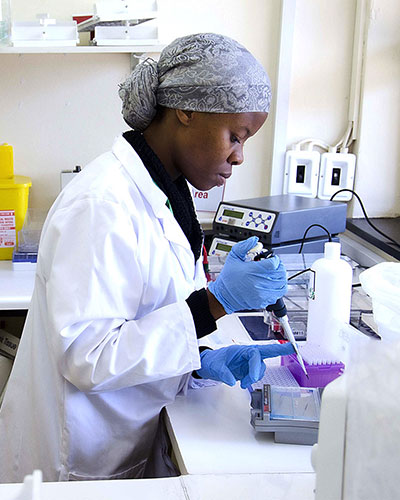
Thursday, September 16, 2021
First Efficacy Results from Africa find Typhoid Vaccine to offer 84 Percent Protection against Typhoid Fever
A new study, published in the New England Journal of Medicine, finds a single dose of typhoid conjugate vaccine (TCV) – the only typhoid vaccine licensed for children as young as 6 months – is safe and 84 percent effective in protecting against typhoid in Blantyre, Malawi. These are the first efficacy results from Africa and part of a five-year, multi-country project to accelerate introduction of TCV.

Tuesday, March 20, 2018
UMSOM Vaccine Experts Lead Trial on Avian Flu Vaccine
Vaccine experts at the University of Maryland School of Medicine (UMSOM) have begun multiple clinical trials of vaccines designed to protect against H7N9, an avian influenza virus that was first reported in humans in 2013 in China.
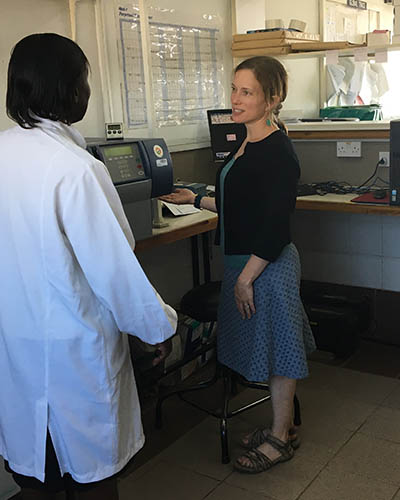
Wednesday, August 02, 2017
UM School of Medicine Receives $2 Million Grant for HIV Research in Malawi
The University of Maryland School of Medicine’s (UM SOM) Institute for Global Health (IGH) and the Institute of Human Virology (IHV) have been awarded a $2 million five-year grant from the Eunice Kennedy Shriver National Institute of Child Health and Human Development to study the impact exposure to HIV has on the immune systems of infants in utero and how those changes impact the ability of infants to fight off infections after birth.
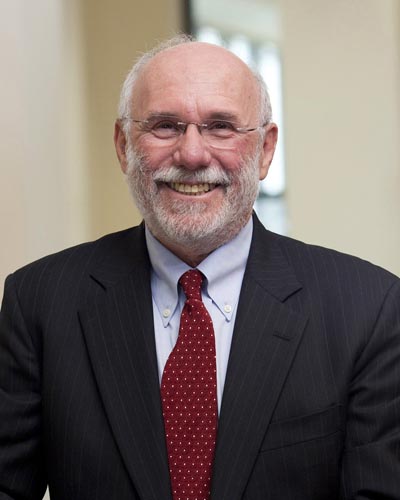
Friday, December 23, 2016
Trial Results Confirm Ebola Vaccine Provides High Protection Against Disease
An experimental Ebola vaccine was highly protective against the deadly virus in a major trial in Guinea, according to a new study that included researchers from the University of Maryland School of Medicine (UM SOM).

Monday, January 11, 2016
UM SOM to Collaborate with Industry to Develop a Vaccine to Prevent Common, Deadly Infection
The Center for Vaccine Development (CVD) at the University of Maryland School of Medicine (UM SOM) will participate in a partnership with industry to develop a vaccine to prevent a group of deadly bacterial infections that occur commonly among hospital patients
